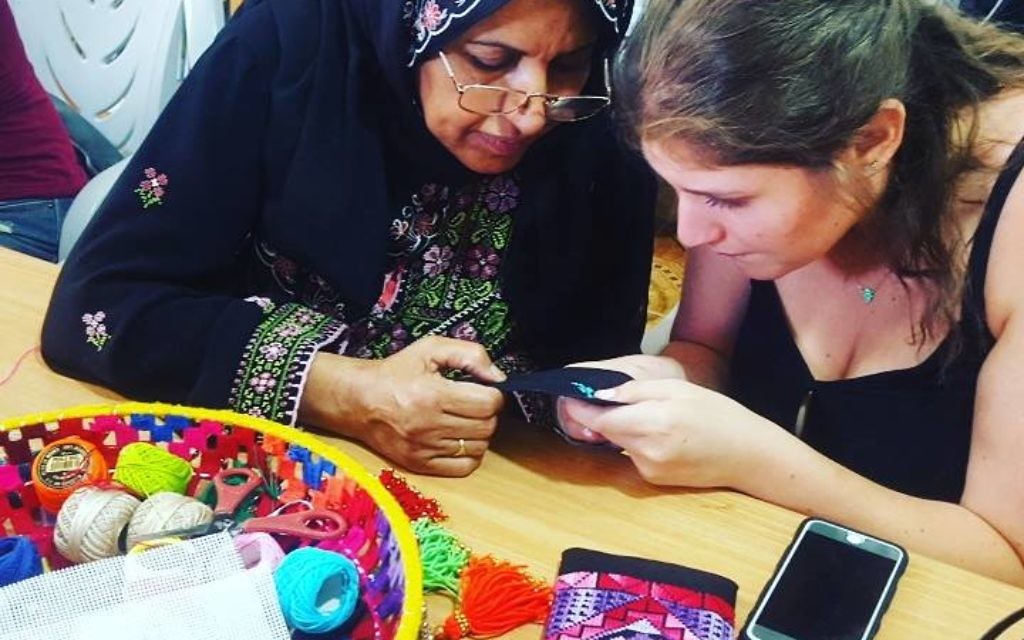Birthright Israel Develops Fashion Sense
New program offers fashion enthusiasts an opportunity to learn more about Israel's growing fashion scene.
Liraz Mordechai is changing how Taglit-Birthright Israel participants view Israel through Fashionating Israel, an extension of the program that offers fashion enthusiasts the opportunity to learn more about Israel’s evolving fashion scene.
Mordechai served as Zara’s training and development manager in Israel, overseeing the clothing retailer’s styling, leadership and sales method while gaining further access to the fashion industry. She then was accepted as an Israel fellow at Duke University, where she served as the Israeli emissary. “I loved every second of it and enjoyed sharing various aspects of Israeli culture with individuals who may not have otherwise known much.”
Mordechai’s interest in fashion led her to create Fashionating by Liri, uniting her passions.
Get The AJT Newsletter by email and never miss our top stories Free Sign Up
“I wanted to discuss how Israeli fashion and its history connect to the country and create something of value.”
Mordechai has hosted conferences across the United States, partnering with museums, synagogues and companies, as well as Jewish and non-Jewish organizations.

Buoyed by the response to those appearances, Mordechai decided to launch the Fashionating Israel extension to Birthright Israel trips. (Interested participants can register at fashionatingbyliri.com.)
After the 10 days on their Birthright Israel trip, participants spend an extra four days chronicling Israel’s fashion industry through various perspectives on its past, present and future. They visit museums and partake in embroidery classes alongside Bedouin women to gain a better understanding of how old garments were made. They also meet top models, including Maayan Keret, view Maskit fashion house and learn about Israeli fashion as it relates to wearable technology and retail solutions.
Before completing the program, participants are tasked with creating outfits in collaboration with online Israeli retailer Co.Co. Each finished item is posted on the website for a chance to have the outfit selected for production the following winter.
“The individuals don’t need a background in design or fashion,” Mordechai said. “We are helping them get there.”

Mordechai said Israeli fashion has transformed the past decade between collectivism and individualism. “Israelis are deciding what type of fashion they want to adopt and whether they wish to become a part of a bigger trend,” she said. “Although you encounter H&M or Zara across the globe, more and more boutiques are providing limited-edition pieces in Tel Aviv.”
Boutiques across Israel still face competition from international labels, Mordechai said. “It’s hard to be a designer in Israel today due to economic challenges, outsourcing and competition in global rent. However, we are also noticing a turnaround in which customers are willing to pay more in order to maintain their identity.”
While fast-fashion brands such as Castro offer hope by providing affordable items through international shipping, high-end designers face separate business challenges.
“While some Israeli labels have garnered success overseas, the time and material used to create various pieces are expensive and may not be for everyone,” Mordechai said. “Designers who have attained success are either very talented and business-oriented or have partnered with someone who possesses business knowledge.”
She noted a shift in Israeli fashion because of political and financial influences. “Israelis’ clothing is a part of their identity, and you can distinguish who they are based on their style and patterns they wear. Individuals often mix pieces that are very trendy and international with items which represent their individuality,” she said. “Comfort is the most popular style and involves coordinating a look that is often very stylish yet effortless.”
Mordechai wants to expand Fashionating Israel beyond Birthright and is working with Jewish Federations to promote the program. She also hopes to launch a separate agenda this winter to discuss women’s fashion.
“We want to use fashion as a tool to teach individuals about Israel’s different emblems since it’s comprised of more than just startups, but also fashion, food, music and culture,” Mordechai said. “The most important aspect I would like participants to take away from the program is the importance of Israeli culture and fashion history. If that’s the only thing they attain, then I will have accomplished my goal.”





comments